CHRISTOPHER BONASTIA is associate professor of sociology at Lehman College and the City University of New York Graduate Center, as well as associate director of the Lehman Scholars Program and Macaulay Honors College at Lehman. He is the author of Knocking on the Door: The Federal Governments Attempt to Desegregate the Suburbs.
The University of Chicago Press, Chicago 60637
The University of Chicago Press, Ltd., London
2012 by The University of Chicago
All rights reserved. Published 2012.
Printed in the United States of America
21 20 19 18 17 16 15 14 13 12 1 2 3 4 5
ISBN-13: 978-0-226-06389-8 (cloth)
ISBN-10: 0-226-06389-5 (cloth)
Library of Congress Cataloging-in-Publication Data
Bonastia, Christopher, 1967
Southern stalemate : five years without public education in Prince Edward County, Virginia / Christopher Bonastia.
p. cm.
Includes bibliographical references and index.
ISBN-13: 978-0-226-06389-8 (hardcover : alk. paper)
ISBN-10: 0-226-06389-5 (hardcover : alk. paper) 1. School integrationVirginiaPrince Edward County. 2. Educational equalizationVirginiaPrince Edward County. 3. Public schoolsVirginiaPrince Edward County. 4. Prince Edward County (Va.)Race relations. 5. Civil rights movementsVirginiaPrince Edward County. 1. Title.
LC214.22.V8B66 2012
379.263dc22
2011013062

This paper meets the requirements of ANSI/NISO Z39.48-1992 (Permanence of Paper).
For KofiHistory never needs much space for its decisive battles. Prince Edward County, an area of only 356 square miles, a farming community of at most 14,000 people, may be the crucial battleground in the fight to integrate the public schools of the South.
Journalist and civil rights activist Marvin Caplan, 1961
Our kids will never go to school with niggers. We mean that. Nobodys going to make em go to school with niggers. We will go to jail first. When you got a principle, youve got to stand by it. You cant be a mollycoddler.
White volunteer worker directing landscape operations at the Prince Edward Academy building, 1961
I constantly question the rightness of what I have asked of my people. I am well aware of the loss the children have suffered by having to grow up in ignorance but I am convinced that all we have suffered and will suffer is worth it. Unless people are free, their spirits are destroyed. And if we love democracy, we cant give up the fight, not only for our sake, but for the sake of America.
The Reverend L. Francis Griffin, black Prince Edward County leader, 1963
ACKNOWLEDGMENTS
IT TOOK SOME TIME to develop a focus for my sophomore squirt, as the late singer-songwriter Vic Chesnutt labeled his second release. (If this book reaches the standards of his West of Rome, Ill be thrilled.) Trolling for details about the Quakers sponsorship of integrated housing in the 1930s (which I mention briefly in my first book), I stumbled upon some information about their involvement in Prince Edward County, Virginia. I spent my undergraduate years at the University of Virginia, and during that time I read Richard Klugers Simple Justice, which covers the early part of the Prince Edward crisis in detail. Twenty-five years later, I thought I had amassed a fairly comprehensive understanding of civil rights history, but realized that I knew only the broadest contours of the Prince Edward story. One of the many things I didnt know was how this remote little county fit into the larger history of civil rights struggles in the United States. I needed to find out more.
Now that I know enough to share what I have learned, I would like to thank some of the many people who helped me to get to this place. Let me take it from the top. If not for the courageous people of Prince Edward who made extraordinary sacrifices to inject life into abstract, elusive principles of freedom and equality, there would be no story to tell. The strike generation deserves recognition as brave pioneers who protested for desegregation when such actions were unusual and dangerous. Respect is also due to members of the lockout generation, who paid the heaviest personal costs in the countys battle over public education. Too often they have been forgotten or marginalized in commemorations of the desegregation fight in Prince Edward, but they are truly civil rights heroes.
In particular, I would like to thank the individuals who took the time to sit with meon the phone or in personand share their experiences: Mori Costantino, Jean Fairfax, Skip Griffin, Jean Konzal, Edward Blue Morton, Odessa Pride, Suzanne Rice, T. B. Robinson, Catherine Scott, Moses Scott, John Stokes, William vanden Heuvel, Laneuville Scott Walker, Patricia Watkins, Lacy Ward, the Reverend L. Samuel Williams, and Ken Woodley. I acknowledge a special debt to Ed Peeples and Rita Moseley. Ed and his familys hospitality, good humor, and fine culinary choices made my Richmond trips fulfilling on numerous fronts. Mrs. Moseleys sustained interest in the project and warm greetings during my visits to Prince Edward remain very meaningful to me.
Brian Grogan, whose documentary is sure to shed new light on the closings, was exceedingly generous in pointing me toward helpful people and resources related to this project, and allowing me to use several quotes from his interviews. Thanks also to Ken and Laurie Hoen, who granted me permission to utilize interviews they conducted for a prospective film project in the 1990s. Kara Miles Turner and Brian Lee, two scholars who have conducted valuable research on Prince Edward, ditched the common practice of scholarly secrecy, replacing it with a welcome collegiality. I also thank the Faith and Politics Institute: these good people were nice enough to let me take part in the 2006 Congressional Pilgrimage to Prince Edward. Though I was too shy to say much to him, meeting John Lewis was a personal thrill.
Memory is a precious commodity in historical work, but it is not infallible, and many people who were there when things went down are no longer with us. This is where research librarians come in, to direct scholars to materials that shed light on what happened, as it happened. Archivists at the American Friends Service Committee, the John F. Kennedy Presidential Library, the King Center, the Library of Virginia, Longwood University, the Schomburg Center for Research in Black Culture, the University of Richmond, the University of Virginia, UVA School of Law, Virginia Commonwealth University, the Virginia Historical Society, and Virginia State University were all helpful and gracious. A special thanks goes to the Library of Virginia and Lehman Colleges guru of interlibrary loans, Gene Laper, for coordinating numerous shipments of the Farmville Herald from Richmond to the Bronx and back again.
Thanks also to the New York City and Steamtown Marathons, Uno Collision, and my ancient Akai Remix 16 sampler for posing different sets of challenges that allowed me to recharge my scholarly batteries. My students at Lehman are a replenishing source of inspiration, and my colleaguesespecially Gary Schwartzare always supportive. Miriam Medina always keeps the office (and my marathon fund-raising) humming and me laughing. Jane Jones, Elisa Garcia, Destiny Cannaday, and Carla Whyte provided valuable research assistance.


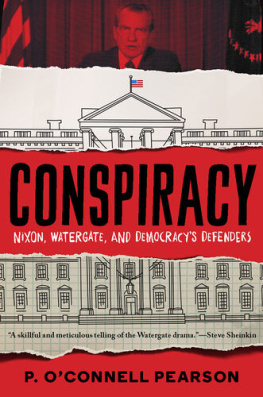
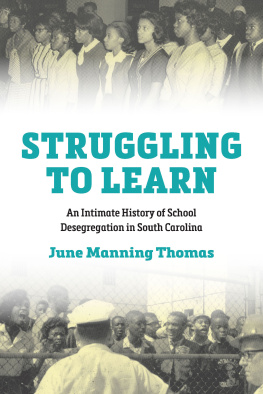
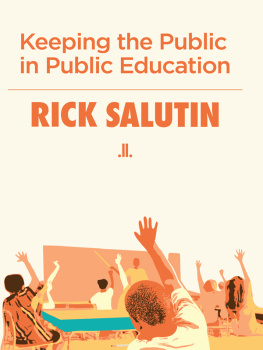
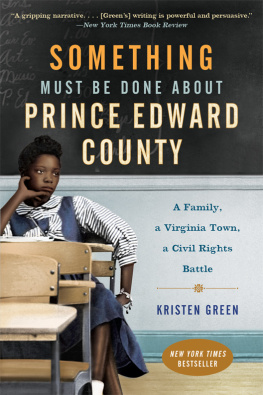
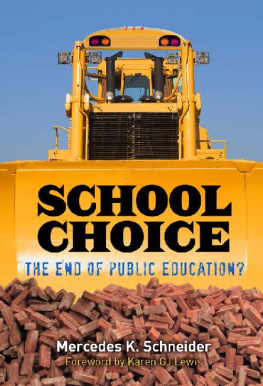
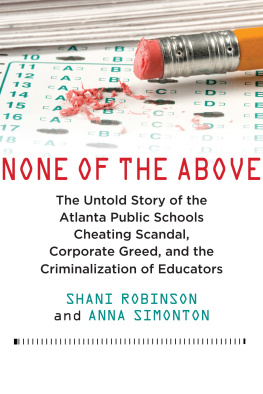
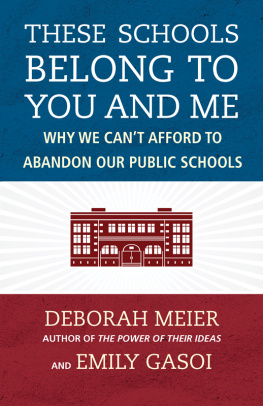
 This paper meets the requirements of ANSI/NISO Z39.48-1992 (Permanence of Paper).
This paper meets the requirements of ANSI/NISO Z39.48-1992 (Permanence of Paper).